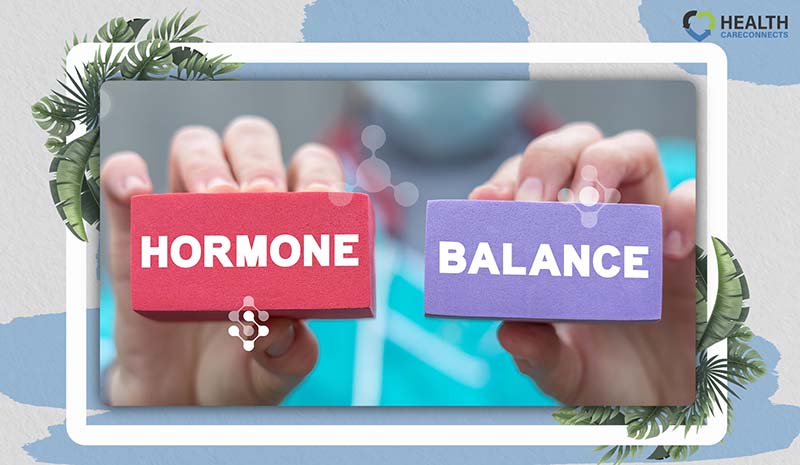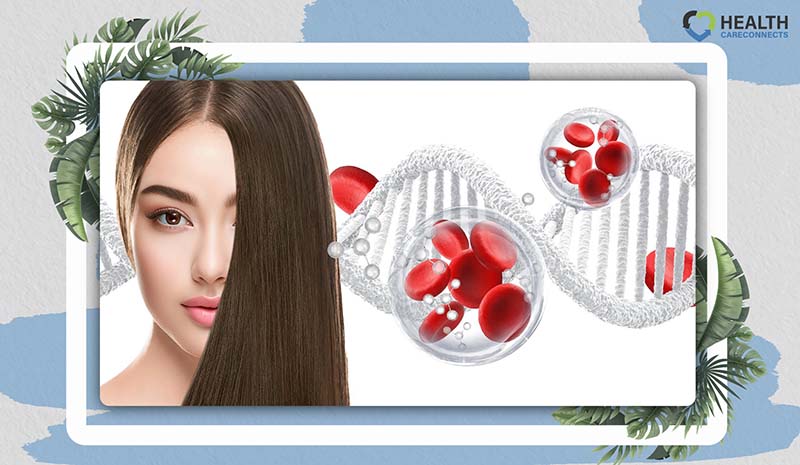Hair loss can be distressing, and it often stems from various factors such as hormonal shifts, genetics, or nutritional deficiencies. Magnesium, a vital mineral essential for numerous bodily functions, is particularly important for hair health.
But is Magnesium good for hair growth? In this article, we’ll explore the connection between magnesium deficiency and hair loss, examine the role of magnesium in the body, and introduce foods that can boost your magnesium intake.
Is Magnesium Good for Hair Growth?
Yes, magnesium is indeed beneficial for hair growth. This essential mineral plays a crucial role in regulating hair follicle production and supporting the hair growth cycle. Magnesium helps to activate different enzymes and biochemical reactions in the body that are necessary for healthy hair development.
When magnesium levels are adequate, hair follicles remain active and continue to produce new hair. However, when there is a deficiency, hair follicles may prematurely enter a resting phase, halting new hair production and potentially leading to hair loss. Ensuring sufficient magnesium intake is key to maintaining a healthy scalp and promoting robust hair growth.
Notes:
- Tip: Eat a balanced diet with plenty of magnesium to support overall health and keep your hair healthy.
- Lesser Known Advice: Magnesium is not only important for hair health but also helps with muscle function, strong bones, and a healthy heart. Eating foods high in magnesium like leafy greens, nuts, seeds, and whole grains can help keep your levels up.

Uses of Magnesium in Hair Growth
Adjusts Calcium Levels
Magnesium helps to regulate calcium levels in the body, which is important for healthy hair growth.
Calcium buildup in the hair follicles can lead to hair breakage and hair loss. Magnesium helps prevent this by ensuring that calcium is properly regulated.
Prevents Inflammation
Many scalp conditions involve inflammation around the hair follicles. Topical magnesium oil products may help to reduce inflammation and improve these conditions.
If you suffer from female pattern baldness and thinning, also called androgenetic alopecia, it’s important to curb scalp inflammation, which may contribute to this hair loss condition.
Balances Hormones in the Body
Hormonal imbalances are a common culprit behind hair loss. Magnesium plays a key role in keeping your hormones balanced, which can help prevent hair issues.
It supports the health of hair follicles, essential for continuous hair growth. To keep your hair strong, thick, and healthy, consider adding more magnesium-rich foods to your diet. This simple step can make a big difference in maintaining your hair’s natural vitality.

Promotes Healthy Hair Follicles
Hair follicles, the tiny structures in your skin that control hair growth, need to be well-managed for proper hair volume.
Magnesium plays a key role in the functioning of these hair follicles to ensure hair growth. Depleted levels of magnesium hamper the functioning of hair follicles, leading to weaker and thinner hair.

Enhances Blood Circulation
Magnesium facilitates the optimum functioning of blood vessels for enhanced blood circulation, which is crucial for hair health.
With proper blood circulation, essential nutrients for hair growth and oxygen are supplied to the hair follicles, creating a favorable environment for healthy hair growth.
Notes:
- Tip: Include magnesium-rich foods like spinach, almonds, and avocados in your diet to support hair health.
- Lesser Known Advice: Combining magnesium with other hair-healthy nutrients, such as biotin and zinc, can amplify its benefits for hair growth and overall health.
Best Magnesium for Hair Loss Treatment
When it comes to choosing the right type of magnesium for hair loss, consider the following options:
- Magnesium Citrate: Magnesium citrate is a popular form that is well-absorbed by the body. It may support healthy hair follicles and promote hair growth due to its ability to improve blood circulation.
- Magnesium Glycinate: Magnesium glycinate is known for its gentle effects on the digestive system. While there is limited direct research on its impact on hair growth, magnesium’s overall role in supporting bodily functions may indirectly contribute to healthier hair.
- Magnesium Threonate: Magnesium threonate is known for its ability to cross the blood-brain barrier, making it valuable for brain health. While not extensively studied for hair growth, its potential benefits for overall well-being could indirectly promote healthy hair.
Notes:
- Tip: When selecting a magnesium supplement, consider your overall health needs and how your body responds to different forms of magnesium.
- Lesser Known Advice: Combining magnesium supplements with a diet rich in other hair-healthy nutrients, such as vitamins A, C, and E, can enhance its effectiveness for hair growth and overall health.
Increasing Magnesium Consumption for Improved Hair Health
Celebrity nutritionist Charles Passler, D.C., advises a straightforward approach to enhance your health and magnesium intake. He recommends cutting down on sugar and avoiding pre-made and packaged foods in favor of whole, natural foods. Incorporating stress-reducing activities and considering a magnesium supplement can also be beneficial.
Magnesium-rich foods like green leafy vegetables should be eaten daily, along with fresh fruits, fish, nuts, beans, whole grains, and even chocolate. Monitoring your fresh produce intake is essential, as many people don’t realize they’re magnesium deficient, and addressing this can significantly improve numerous health issues.
Here are some foods high in magnesium that can help promote healthy hair:
- Spinach: Spinach is a nutrient-dense leafy green vegetable high in magnesium, iron, and other vitamins and minerals important for hair health.

- Almonds: Almonds are a good source of magnesium, protein, and healthy fats, which are important for promoting healthy hair growth.

- Avocado: Avocado is a nutrient-dense fruit high in magnesium, healthy fats, and other vitamins and minerals that are important for hair health.
- Salmon: Salmon is a fatty fish high in magnesium, omega-3 fatty acids, and other nutrients that promote healthy hair growth.
- Pumpkin Seeds: Pumpkin seeds are a good source of magnesium, protein, and other vitamins and minerals important for hair health.
- Dark Chocolate: Dark chocolate is a good source of magnesium and antioxidants, which can help promote healthy hair growth.
- Black Beans: Black beans are a good source of magnesium, protein, and other nutrients important for hair health.
How to Use Magnesium for Hair Growth
Before buying everything that claims to have magnesium, we recommend consulting a doctor for the best advice on how to proceed. Here are the two main ways you can use magnesium to help grow hair:
Topical Application:
- Sprays and Oils: You can rub magnesium sprays and oils into your scalp. This direct application can help improve hair health by delivering magnesium straight to the hair follicles.
- Where to Buy: You can order magnesium oils and sprays online through various retailers.
Oral Supplements:
- Magnesium Tablets: Taking magnesium supplements is another effective way to ensure your body gets enough of this essential mineral for maximum absorption.
- Where to Buy: You can pick up magnesium tablets from grocery stores, drug stores, and convenience stores.
Notes:
- Tip: Always follow the dosage instructions on the supplement label or as advised by your healthcare provider to avoid potential side effects.
- Lesser Known Advice: Combining topical and oral magnesium can provide a dual approach, potentially enhancing the benefits for hair growth and overall health.
Potential Risks of Magnesium Supplementation
Magnesium supplements can cause side effects such as nausea, upset stomach, and diarrhea. Additionally, magnesium has a stool-softening effect.
- Drug Interactions: Magnesium may not be safe for people taking diuretics, heart medications, or antibiotics. Inform your doctor if you are being treated for a medical condition or are taking any medications before starting magnesium supplements.
- Effects on Other Conditions: People with diabetes, intestinal disease, heart disease, or kidney disease should not take magnesium unless specifically directed by their treating doctor.
- Overdose: Signs of a magnesium overdose include nausea, diarrhea, low blood pressure, muscle weakness, and fatigue. Magnesium can be fatal if taken in too high a dose. When taken by mouth, magnesium is relatively safe if kept at doses below 350 mg per day in healthy adults.
The Correlation Between Magnesium Deficiency and Hair Loss
Magnesium deficiency can lead to hair loss through several mechanisms:
- Impaired Circulation: Magnesium is crucial for maintaining proper blood circulation. Low magnesium levels can result in reduced blood flow to the scalp, depriving hair follicles of essential nutrients. This lack of nutrients can weaken the hair, leading to hair loss.
- Weakened Hair Follicles: Magnesium aids in strengthening the keratin structures in hair, which helps anchor hair follicles firmly in the scalp. When magnesium levels are low, these follicles can weaken and shed more easily.
- Hormone Balance: Magnesium plays a significant role in regulating hormones, including testosterone and dihydrotestosterone (DHT), both of which are linked to hair loss when imbalanced. By helping maintain hormone balance, magnesium can prevent hair loss.
Additionally, magnesium deficiency may contribute to alopecia, an autoimmune condition where the immune system attacks hair follicles, resulting in hair loss across the scalp, face, and sometimes the body.
Low magnesium levels can make hair follicles more susceptible to this attack. Supplementing with magnesium might reduce the severity of alopecia and encourage hair regrowth.
Notes:
- Tip: Monitor your magnesium intake through diet or supplements to support hair health and prevent deficiencies.
- Lesser Known Advice: Regular check-ups with a healthcare provider can help detect and address magnesium deficiencies early, potentially preventing hair loss and other related health issues.
Conclusion
In conclusion, hair loss is a common issue that can greatly affect one’s self-esteem. Understanding its causes is key to effective prevention and treatment. Magnesium is crucial for healthy hair, helping to strengthen follicles and promote growth.
By ensuring you get enough magnesium and adopting a holistic hair care routine – including proper nutrition and gentle handling – you can maintain vibrant, healthy hair and potentially prevent hair loss.
For those seeking more information and honest product reviews, I recommend visiting HealthCareConnect.

Dr. Joyce Slater: Your Guide to Informed Health Choices
Dr. Joyce Slater shines as a distinguished expert in the field of nutrition and public health. Contributing her vast expertise to HealthConnectbc, she embodies a deep-seated passion for enhancing public well-being. As a respected figure in her field. Dr. Slater’s academic journey and professional achievements are nothing short of inspirational.
Holding a significant position as a researcher and educator, Dr. Slater has delved deeply into the intricacies of food literacy and nutritional science. Her work, prominently featured in numerous esteemed scientific publications, underscores her dedication to expanding our understanding of food’s role in health and society.
At the heart of Dr. Slater’s professional ethos is a profound desire to positively impact individual lives through education and research. She often says, “Empowering people with the knowledge to make healthier choices is the most rewarding aspect of my work.” This principle is the cornerstone of her involvement with HealthConnectbc, where she strives to provide reliable and practical health advice.
Dr. Slater’s contributions to HealthConnectbc are multifaceted: academically, she offers insights into the complex world of nutrition and health, enhancing both public understanding and professional practices. Additionally, she is instrumental in guiding and inspiring the next generation of health professionals, thus fostering future excellence in the field.
Juggling rigorous research with her educational duties, Dr. Slater demonstrates an unwavering commitment to her profession. Her approachable nature and genuine concern transcend the confines of academia, touching the lives of everyone she interacts with. Dr. Slater looks forward to continuing her journey of discovery and education, dedicated to the ongoing improvement of public health and nutrition.
At HealthConnectbc, Dr. J. Slater is not just a contributor; she is a guiding light, dedicated to enlightening and motivating individuals towards a healthier and more informed lifestyle.
PUBLISHED ARTICLES
- Food literacy competencies: A conceptual framework for youth transitioning to adulthood (2018)
- Self-perceived eating habits and food skills of Canadians (2016)
- Challenges to acquiring and utilizing food literacy: Perceptions of young Canadian adults (2016)
- Socio-demographic and geographic analysis of overweight and obesity in Canadian adults (2009)
- Sustainable well-being: Concepts, issues, and educational practices (2014)

